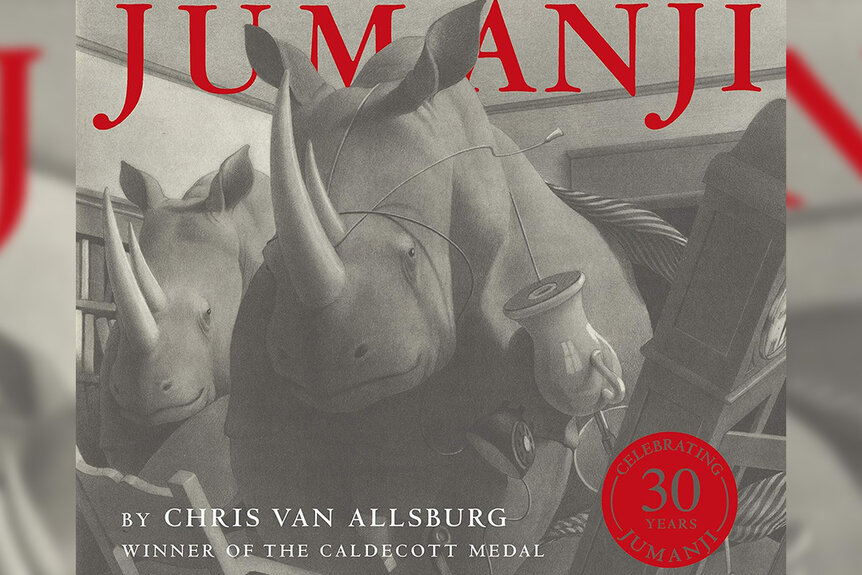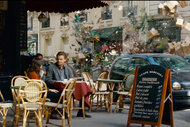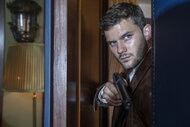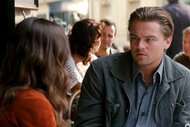Create a free profile to get unlimited access to exclusive videos, sweepstakes, and more!
Hail to the Chimp? Jumanji Author Reveals Unmade Sequel Would've Brought Jungle Mayhem to White House
And yes, the plan was to have a gorilla climb the Washington Monument in an homage to King Kong.
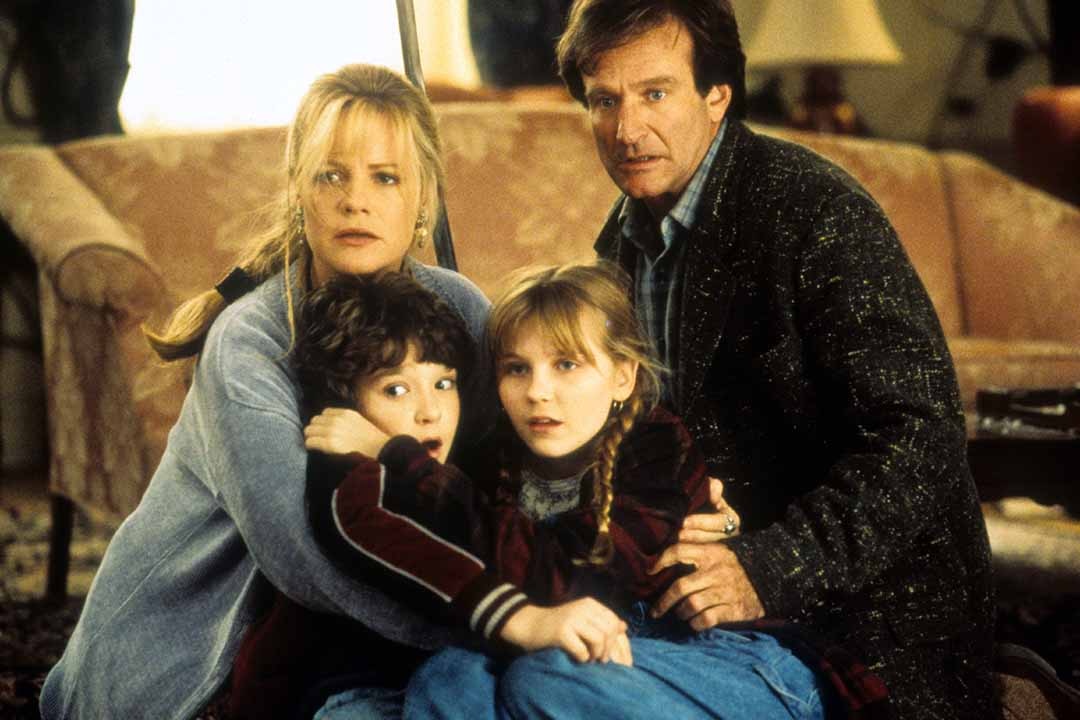
Why did it take so long for Jumanji to get a sequel (no, the cartoon series doesn't count)? After all, the Robin Williams classic (now streaming on Peacock) turned out to be a massive box office success, grossing a little over $262 million worldwide against a budget of $65 million, and serving as a prime example of how emerging digital tools could bring even the most grandiose ideas to life on the big screen.
Handing down the green-light to another installment right away should've been a no-brainer for Sony, but it would take more than two decades for the lucrative property to make its way back to theaters in Jumanji: Welcome to the Jungle, which effectively rebooted the franchise. Well, it turns out that several pitches for a direct follow-up were submitted throughout the late '90s. The wildest of the bunch would have seen the board game's jungle chaos unleashed upon the political jungle of Washington, D.C.
Jumanji author/illustrator Chris Van Allsburg reveals scrapped sequel ideas
Purportedly titled Jumanji: The White House, the scrapped sequel concept followed up on the final shot of the 1995 original, which shows a pair of French-speaking girls walking toward the supernatural board game on an unknown beach.
RELATED: 'Jumanji': Revisit everything you didnt know about the board game adventure
"I don't know if there was a single writer involved, but [they] decided that that event happened in Normandy, that the game had floated across the ocean," Chris Van Allsburg, upon whose Caldecott Medal-winning children's book the entire Jumanji franchise is based, tells SYFY WIRE over a phone call. "The game ends up in an antique shop in Normandy and stays there for some period of time."
So how does it get from France to the epicenter of American political influence? Simple! The President of the United States would be visiting Normandy for a commendation of the D-Day invasion.
"He’s promised his kids to bring back a souvenir from his trip," Van Allsburg continues. "And so, the presidential entourage stops at this little antique shop in Normandy and the President goes in and finds this old board game, Jumanji. He packs it up and he takes it back to Washington, DC and then all the mayhem that the game can generate is generated in the White House and the halls of Congress ... They had some crazy stuff. I think there was a gorilla that climbs the Washington Monument in an homage to King Kong."
The pitch also included a scene in which two animals are accidentally cut in half by the propeller of an airplane or helicopter. "Then they were able to reassemble themselves into into different parts of an animal," Van Allsburg recalls. "It was just a really lame excuse to see what some CGI artist could do. Totally idiotic."
Van Allsburg detested the White House idea so much, that he basically wrote Zathura to stop the project from getting made. "One of the producers said to me, ‘The only thing that would keep them from making this is a better idea,'" he says.
This sent him back to the light research he'd done on classic board games for Jumanji. In the early days of the industry, game boards were double-sided, offering two campaigns in one, allowing kids to stay engaged for longer periods of time. "I thought, ‘Well, what if inside the Jumanji jungle game, there was a space adventure game on the backside? Instead of instead of playing Jumanji, a game in which the jungle came into your house, what if it was a space adventure game in which your house went to outer space?’"
He wrote out a one-page short proposal and submitted it to his editor, hoping to woo Sony away from Jumanji: The White House. Published in 2002, Zathura picks up right where Jumanji (the book) left off, with brothers Walter and Danny Budwing discovering the box Judy and Peter had just returned to the park across the street.
"I thought if Sony saw that the author of the original material was publishing a book that was a space adventure game called Zathura, where a house went to outer space, maybe that would at least give them pause and reconsider,'" Van Allsburg admits. "So I was surprised and happy when Sony read the book proposal and said, ‘We'll option that right now.’ [Sony boss] Amy Pascal was enthusiastic about it and said, 'Yeah, this is a good idea.’"
Adapted by Jurassic Park scribe David Koepp and released in November 2005, Zathura: A Space Adventure marked the third directorial effort from a pre-Iron Man Jon Favreau. The film received a warm reception from audiences, but failed to turn a profit, barely making back its $65 million budget. "It was just one of those things where you have great test audiences, everything's gung-ho, and then it just doesn't pan out," Van Allsburg says. "They still believed in Jumanji and went back [into sequel development] for some years, I don't even know how many years, and then finally came up with Jumanji recast as a video game [in Welcome to the Jungle]."
Another axed sequel would have seen the game falling into the possession of a rundown circus that uses the mystical item to drum up business. "Because suddenly, they've got all these tricks they can do. [But] that required the game be played with a lot of luck."
RELATED: 'Battleship,' now streaming, is one of the stupidest movies ever made. It's perfect.
While the studio wanted Williams to reprise the role of Alan Parrish, the in-demand actor was ambivalent about committing to a lengthy shooting schedule. He did, however, seem open to doing a few days of voiceover work, which would significantly reduce the time he needed to be on set. This led Van Allsburg to put forth the idea of Alan becoming a "very large" CGI toad through the magic of a witch doctor, much in the same way Peter (Bradley Pierce) transforms into a monkey when he attempts to cheat in the first movie.
"Robin Williams would [only] have to put in four or five days establishing his human character and at the end, [we’d see] his revitalized human character," the author remembers. "But the middle of the film would be driven by this loudmouthed toad voiced by Robin Williams. The producers liked it, but that one didn’t really get up and go either. Looking back on it, I think it could’ve been great."
Is "Jumanji" a real word?
If you ask Wikipedia and the trivia section at IMDb, they'll tell you that "Jumanji" is a Zulu word for "many effects." This fun little tidbit is attributed to Van Allsburg, but there's only one problem: the author can't ever recall saying it before in his life. "I'd be surprised if that's actually a word in Zulu," he says. "I just made it up, it doesn't mean anything."
Just like he did with Zathura, the author/illustrator wanted to come up with a cool and eye-catching name. "I was looking for something slightly exotic and something that evoked the idea of the jungle. I probably got to the J-U based on my interest of phonetically connecting it to the word 'jungle.' I'm not sure where M-A-N-J-I came from, but it was a made up word. I'm not sure it means anything. Back when I wrote it, it was impossible to put a word like 'Jumanji' into Google and see if it meant something in another language. It may, I don't even know. I don't think I've done it yet."
RELATED: Is Jumanji Based On a Real Board Game?
As for the story itself, the author/illustrator says he's always been captivated by combing traditionally incongruous images to evoke a feeling of "cognitive dissonance" in the reader. Van Allsburg uses the example of a Buick that has crashed into a bungalow.
"A car isn't isn't that interesting by itself and neither is a bungalow. But when you stick the car into the bungalow, it's a different scene ... I knew if I could [show] rhinoceroses charging through a dining room or put a python on a living room mantel, it would have the same effect. We’ve seen jungle animals before, we've seen living rooms before, but you don't usually see the animal in the living room."
The humdrum explanation for such a scenario would be a mass breakout from the local zoo, which Van Allsburg considered a very interesting way to drive the story forward. "I'm not sure why, but I thought about the disappointment that accompanied playing board games when you were a kid," he concludes. "We have imaginations, but I wondered what it'd be like to play a board game that didn't require any imagination. If you’re playing Monopoly and you actually got sent to jail, it would be a different kind of game. So I thought I would provide myself the opportunity to do the picture-making I wanted to do by proposing a jungle adventure game in which the game came to life. And all the pictures that I wanted to draw would actually be manifestations of gameplay."
Jumanji is now streaming on Peacock.
